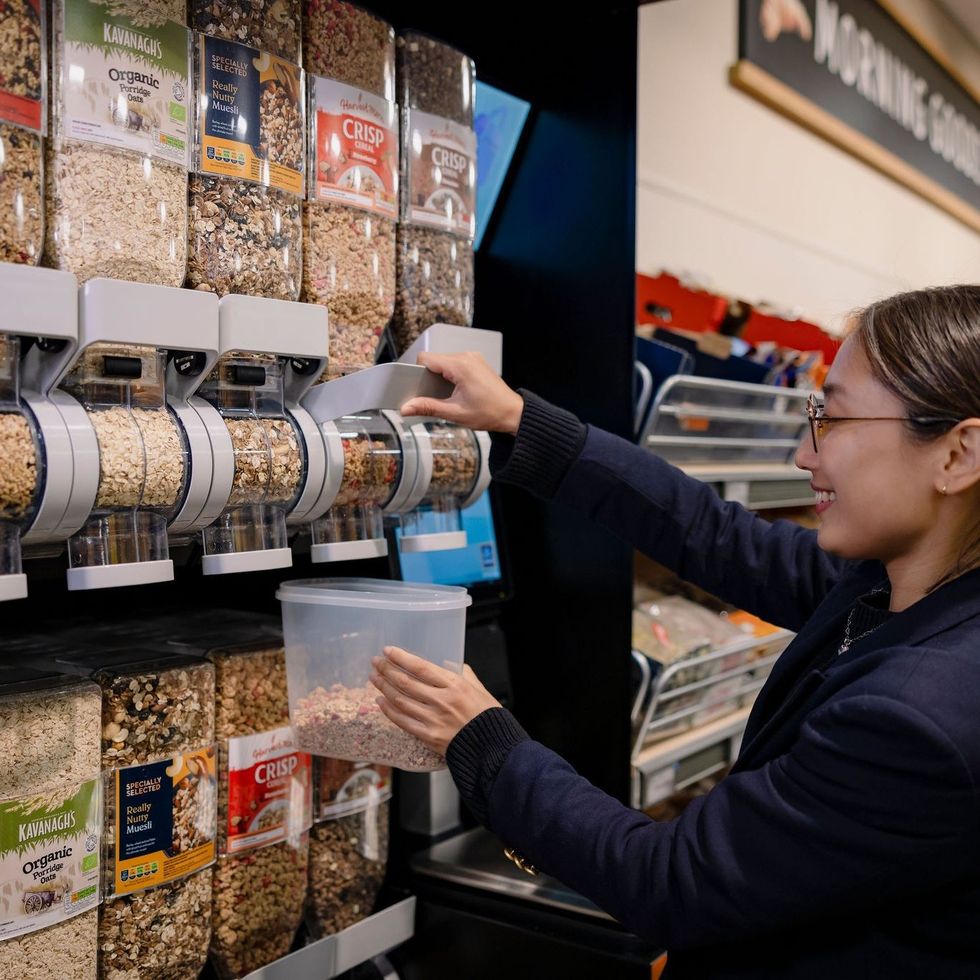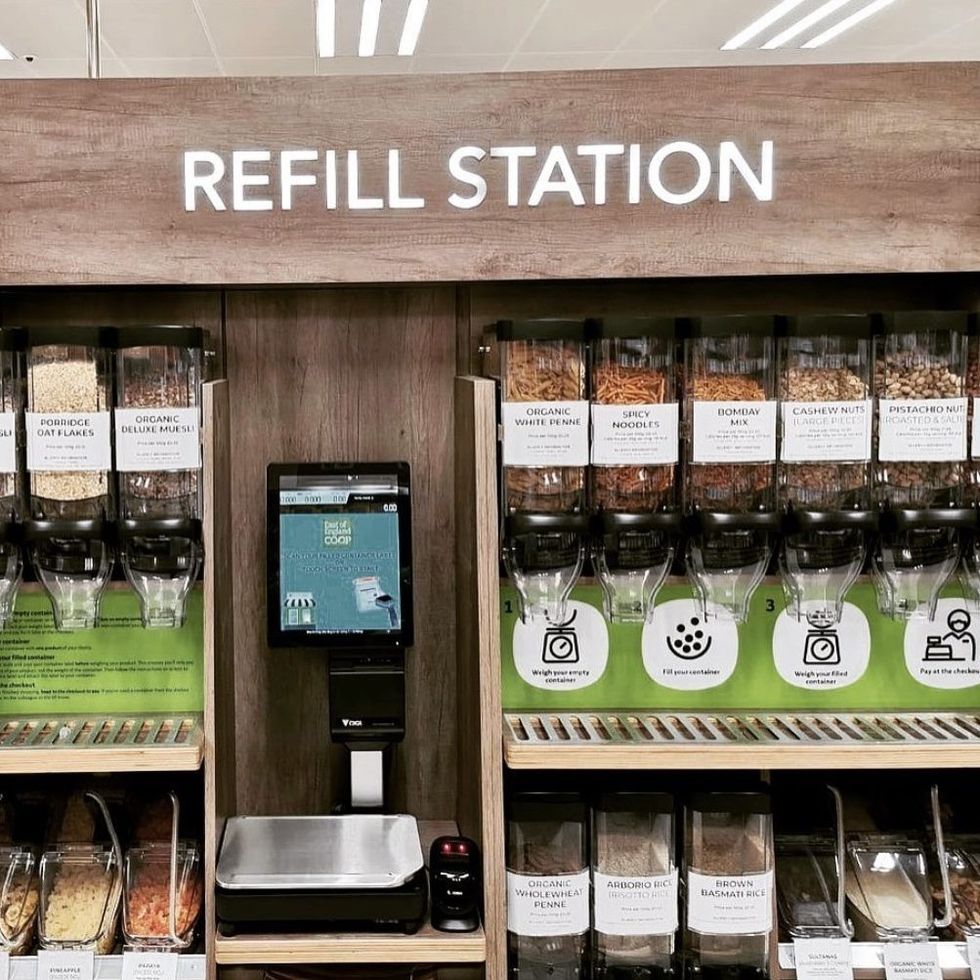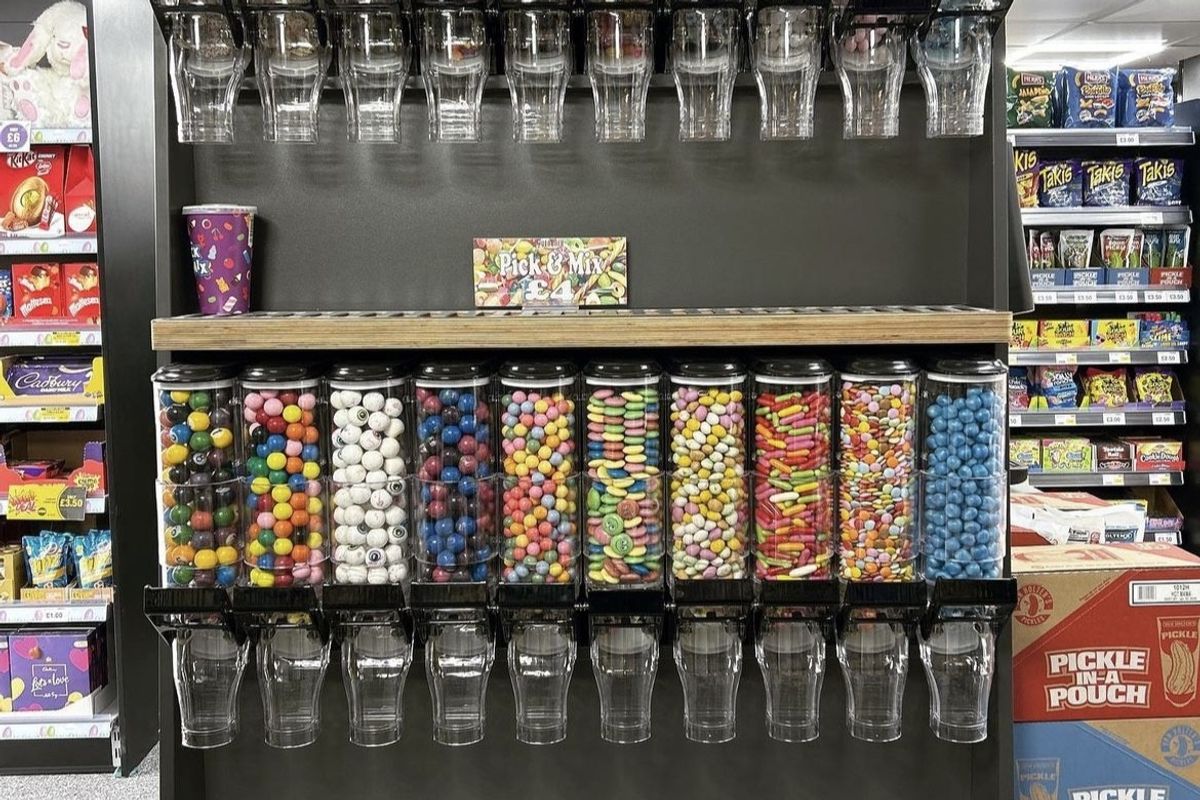While supermarket giants seem to be failing at taming refill retailing, independent convenience stores stand a better chance in mastering this skill, Asian Trader has learned.
Armed with a well-thought-out strategy and the right set of tools, it is not impossible for convenience stores to take the lead in refill retailing, thereby developing themselves as forward-thinking businesses that align well with environmental needs as well as possible future regulations.
It is a harsh reality that we are all at the precipice of a plastic apocalypse. It is an issue that attracts lots of words yet hardly any actionable action. And no, recyclable packaging is not the complete solution here, as let’s face it- most of us do not bother to recycle and reuse and a major proportion of plastic packaging ends up straight in landfill or in oceans.
UK’s leading charity Waste and Resources Action Programme (WRAP) seems to agree. Its recent report provides some startling evidence of how the UK can lose the battle against single-use plastic unless the industry, consumers and ministers take bold actions soon.
The report adds that by next year, retailers must review their product categories to identify which ones to move from single-use to reusable or refillable packaging. The charity has urged the government to draw up regulations from 2025 onwards that would “obligate” the massive shift by retailers and suppliers towards refill retailing.
Multiple reports and surveys suggest that there is a huge demand among public too for stores to cut down single-use packaging of grocery products while most agree that more stores should offer refill options, especially across dry essential items such as pasta, rice as well as in household products like liquid laundry detergent and fabric conditioner.
However, what is actually happening on the ground is not very assuring and it seems the idea is not picking up, at least not in supermarkets.
Last month, supermarket Asda scrapped its flagship store trials of refillable packaging technology, citing “operational challenges”. In 2022, Tesco quietly ended its trial citing economic barriers. Other retailers, including Morrisons and M&S, have also canned trials of refill aisles, citing lack of appetite from consumers and the impact on store environment.
Local Advantage
Clearly, refill retailing is more complex and less practical for bigger supermarkets where shoppers usually come unprepared (not carrying any bottle or containers for refill) and often pick pre-packaged products to avoid any spillage during the long errand run. However, things are different with local stores.

Really Good Culture’s Retail Specialist Phil Mc Mahon agrees, “Maybe it is simply a bit too inconvenient for customers to bring multiple containers on a longer journey to the supermarket to be refilled. But if they can quickly pop to their local convenience store to refill their cereal or washing up liquid as soon as it runs out, it might be a much easier habit to adopt.”
Some independent stores, like Central Co-op Dodworth Community Store and Costcutter Epsom, are already pioneering refill retailing though they are still more of an exception than the norm. However, the idea is being loved at community level.
Premier Talbot Store in Poole installed refill stations about two years ago, and the customer response has been great. Asian Trader Award winning retailer Ehamparam Karunanithy, who owns the store, told Asian Trader how his shoppers love this concept and have adapted to this habit.
“My shop is close to a university, so we get a lot of students. The refill stations work perfectly for them as they can take whatever amount they need. Some even buy cereals or stuff like pasta for just one meal. Refill stations give them flexibility to control the amount they are buying and it’s easy on their pockets too,” he said.
Interestingly, it is both sustainability concerns and lower costs that drive customers to this section. Nisa Local store on Bury Road, Bolton, also runs a refill section that even acts as the store’s unique selling point in the local area.
Paula Lafferty, Store Manager at Nisa Local Bury Road, said, “We know that times are tough financially for a lot of people now and purse strings are getting tighter and tighter with prices going up. Customers are questioning why they need to buy that big bag of pasta when they only want a little bit.”
Martek Zero Waste, a leading supplier of refill systems for dried foods and liquids, has been assisting in increasing numbers of refill stations in local stores.

Martek Zero Waste director Cameron Galloway told Asian Trader, “Within the convenience sector specifically, we have introduced a variety of different bespoke refill offerings to stores across the UK.
"Additionally, we have worked with franchised symbol groups such as Budgens, Premier, Spar Londis and others to typically merchandise products such as fruit and nuts, pick and mix, chocolate and other popular products as well as grocery items such as pastas, pulses, grains and rice.
"We have had a great deal of traction in the last two years supplying independent convenience stores with products such as our bestselling 22L EcoScoop bin.
"Our current projection is that demand will continue to increase at least another 100 per cent in the next year as word spreads across the sector of the benefits of selling products in bulk and increasing legislation for retailers to cut their single-use plastic consumption comes into effect,” Galloway said.
Not a cakewalk
Despite its multi-faceted benefits, the uptake of refill stations in local convenience stores in the UK has been painfully slow, primarily due to perceived operational difficulties and space constraints.
Echoing the wider sentiments, retailer Julie Kaur, owner of Jules Premier in Hadley, Telford feels that her shoppers are not ready for package free retailing.
Kaur told Asian Trader, “I don’t think my shoppers will be okay with this concept. Also, installing refill stations require space since that can only be an add-on offering and not the core offering. Plus, a staff needs to be dedicated to clean any spillage that is bound to happen.”
Spillage is indeed a major concern in refills, agrees retailer Karunanithy, who has first-hand experience of handling this section.
Apart from space and maintenance, the cost of installing refill infrastructure can also be significant, particularly for small businesses. McMahon strongly feels that the onus is on brands to bear the initial cost as they are the ones looking to reduce the volume of packaging they create.
London-based firm GoUnpackaged helps the makers in transition from single-use to reusable packaging. Its venture The Refill Coalition has been a pioneer in installing reusable bulk vessels for key food staples, starting with some select Aldi grocery stores in England.

Talking about the little uptake of refill stations in local stores, Catherine Conway, Reuse Lead at GoUnpackaged and convenor of The Refill Coalition, explained how the current refill model is too difficult to operate as it requires too much space back of house for a clean room (for staff to manually clean and refill the dispensers) than is available in smaller format stores.
Conway told Asian Trader, “This is something we are trying to solve with the solution we have developed as The Refill Coalition. The solution reimagines in-store refills using a standardised vessel that is filled by the supplier, and returned up the supply chain for hygienic washing and refilling removing all the operational burden from store level.”
Clearly, if there are problems, there are solutions, too.
Galloway from Martek Zero Waste said, “We have gone for a ‘one stop shop’ approach where you can purchase every component required to set up a display in one place and also developed accompanying ‘plug and play’ fixtures to accompany the refill dispensers.
"This can be seen in locations such as Co-op Central England and countless independent stores which have all of their products from sweets and nuts right through to liquids displayed in an aesthetic and practical manner.”

Further busting the myths of low customer uptake, Galloway added, “Within the convenience sector, we have had multiple instances of retailers approaching us to install displays into their stores and then subsequently increasing the size of those displays as they quickly see how good the ROI is on our dispensers.
“In our experience, it is all about the product range. If retailers are merchandising in bulk, products that are ordinarily very popular in their packaged form, then it’s a no brainer to sell them in bulk as the margins are higher and it gives customers the ability to take the precise amount of each product,” he said.
Start little, but start anyway
With more and more virgin plastic being produced every year, the onus lies on everyone to clamp down on its use. To put it in perspective, UK households are throwing away an estimated 1.7 billion pieces of plastic a week, 90 billion pieces a year.
Conway from GoUnpackaged told Asian Trader, “Consumers are crying out for solutions to the problem of single-use, especially plastic, packaging.
“Businesses need to respond to this whether they are large retailers and brands or local independent convenience store owners both to stay relevant to their customers, in a deeply competitive trading environment, as well as to stay ahead of legislative changes as Extended Producer Responsibility (EPR) taxes come in.
“If considering installing a refill station, store owners should look at scalable industry wide solutions such as The Refill Coalition's to ensure the station is commercially and operationally viable for their business,” she said.
Additionally, the cost of living crisis has put own-brand food items in the forefront and multiple industry reports show the habit is here to stay. An easy-to-use refill station may just turn out to be a strong driver of incremental footfall and sales in the long run.

Retail specialist McMahon told Asian Trader, “Refill stations in local stores will appeal to environmentally conscious local customers who wish their recycling bins were not overflowing again just a couple of days after being emptied. Bulk purchasing may reduce costs and enabling customers to buy only what they need may encourage repeat visits and customer loyalty.”
Retailers, opting for refill stations, must make sure to provide guidance to customers at each step from educating them about benefits and guiding them how to use.
“We need to remember that Rome wasn’t built in a day. Changing shopping habits takes time,” McMahon said.
Despite many solutions, refills remain a huge conundrum for convenience stores, mainly due to space constraints.
McMahon explained, “Space considerations can be tricky for stores that never envisaged needing space for refill stations. And do you perceive it to be a risk or an opportunity to remove an existing fixture to make room for an unproven concept? Maybe the answer lies in not doing too much too soon. Maybe start with one product category, learn what does and doesn’t work, and build from there.”
The fight against plastic pollution is an uphill battle, riddled with complexities and challenges, but as WRAP points out, it is “not insurmountable if the industry collaborates”.
Convenience stores, with their unique position in the community, can lead this transformation. While the journey may be fraught with operational hurdles, the potential rewards- less load on landfills, customer loyalty, better margins and compliance with future regulations- make it a battle worth fighting for.


